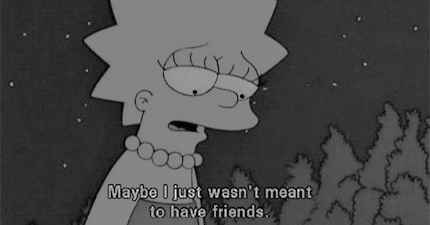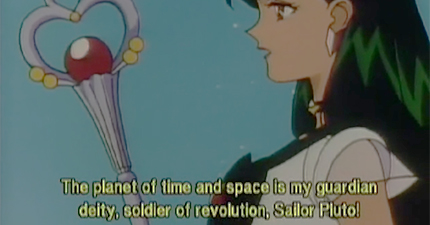Today, I want to practice a bit of doubt around what I think is one of the more prevailing myths of our time. It’s this idea that criticism improves things, that it makes things better.
I used to teach art so I have an art teacher’s perspective on this. You have to keep in mind that I was teaching people of all ages. Three year olds to seventy year olds. These are age groups with very different needs.
When you’re teaching art, you can tell when someone has half assed a project. Senior citizens will half ass things just the same as kids. Usually, someone half asses a thing because there’s something else keeping their interest (the senior citizens would frequently half ass something when T Mobile was giving out free stuff and they wanted to go or when they just wanted to play mahjong instead of making art) or if they’re uncertain about their abilities.
A person hands you a painting. They used a whole canvas which took a decent chunk out of your limited budget for the workshop series. They made two scribbles in oil pastel and the rest of the canvas is blank. They tell you “I’m done” with a defiant expression.
What do you do in this scenario? Do you tell them that they didn’t do enough and ask if they’re bullshitting you? That they’re not really even painting? That they need to fill the whole canvas because canvases are expensive and they’re just wasting materials that other people could have used at this point?
If you do this, the person will likely not improve the painting they already made and nor will they make another attempt. Remember—they are defying you. You are trying to get a rise out of you so that they can see whether your class is going to be fun enough for them.
The only thing you can do when this kind of thing happens is to take the half assed attempt seriously. You ask them questions. Serious questions. Why did they choose this color? What motivated them to stretch out a line in a certain way? There’s something experimental happening with composition here. You wonder out loud what that thing is. You tell them that their gestures remind you of different artists because it’s true. You ask that they do the thing they just did again.
You show them that you are going to take them seriously.
This is an extreme example. Usually, even when things are not this extreme, when you’re looking at someone’s work or how someone lives their life, you can find something you think is wrong with it. They made their outline too sloppy. It runs off the page. It’s constrained by the page. The proportions are wrong.
Someone doesn’t stand up for themselves well enough. They are too whimsical when you think they should be forthright. They break too easily under pressure. They’re too angry. They don’t know enough.
These are all critiques that we might level against someone else. I’m not debating whether these criticisms are true or valid in this writing. I’m exercising some doubt around the idea that criticism supports people in becoming better people.
You know what happens when you hand a painting that you have ten different criticisms for back to the maker without saying anything but a word of encouragement? They make another painting. Usually, in this painting you’ll find that the flaws you saw so clearly in the first painting are no longer there.
This is something that I believe—there’s one thing that makes improvement possible and that thing is doing it again. It’s practice.
When I saw that I’m not sure if criticism helps things improve, I’m mostly uncertain that it encourages practice.
I keep hearing this word “constructive criticism” getting thrown around so I look up the phrase. There are a lot of workplace etiquette guides around the topic. Constructive criticism is useful when you want a coworker to stop speaking over you. It’s also useful when you have a product that needs to meet a deadline in a certain shape.
I think that criticism helps us finish things because it actually reveals to us the things that we want to stop doing. There’s something in analytic practice called reality testing. Reality testing is when you ask cutting questions or level criticism against an already formed perspective to see whether it holds up to inquisition. Reality testing is kind of like reality pruning. It shows you what you don’t believe. Because reality testing is cutting, you can also use it in self defense.
There are a lot of valuable things we need criticism for. We need it to test our perspectives. We need it to make us self conscious so that we can spot things we don’t really want to do. We need it to speak truth to power, to reveal power and to cut into its walls. We actually do need criticism for self defense, to clarify what is unchanging about our own minds.
There are also things that criticism can’t do because it’s just not made for those things. Criticism may not encourage the reluctant to practice love louder. It may not inspire faith or mystery. It doesn’t always allow the contradiction that is needed to care about the world and it might not make our bonds stronger. It doesn’t usually create the experimentation needed to change someone’s mind.
It is because we need criticism so dearly that we also need space away from criticism. Agreements to hold criticism at bay are not what drives ignorance. If that were true, then it would be so easy to make the world a better place. All we would need to do is become more opinionated with each other. Sadly, things don’t tend to work like that. We have bigger fights in front of us.
I do think that there is something about the myth of American utopianism in the myth of self or social improvement through criticism. It’s this idea that things will get better as we get harder. Maybe this is also a kind of faith—this dream of improvement. I feel that it is a cynical dream. Maybe, today, I am criticizing the faith required to believe in criticism. I am trying to see if it holds up to reality testing.

